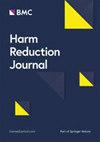Muslims perceptions of safe alcohol use: a qualitative study in the Gulf Council Cooperation countries
IF 4
2区 社会学
Q1 SUBSTANCE ABUSE
引用次数: 0
Abstract
The purpose of this study was to explore Muslim’s perceptions and views of raising awareness on safe alcohol use and counterfeit alcohol harms in Islamic countries. Qualitative semi-structured interviews with a purposive sample from the Gulf Council Cooperation (GCC) countries. The data were analysed using a reflexive thematic analysis method. Twenty-three participants took part in this study. We have identified five themes from the data, including perceptions on alcohol use in the GCC, community’s openness to alcohol discussions, approaches to raising awareness on alcohol use, all forbidden is desirable, and legalisation is the solution. All participants acknowledged the existence of alcohol use in GCC communities and advocated for the need to raise public awareness about the harms of alcohol use. Opinions on approaches to raising awareness varied. Some participants suggested focusing awareness on the religious messages prohibiting alcohol use, emphasising that alcohol is harmful in any quantity. For some, raising awareness of safe alcohol consumption was viewed as accepting and encouraging alcohol use, which goes against Islamic religious beliefs. Some participants attributed alcohol misuse and the consumption of counterfeit alcohol to the ban on alcohol products in some GCC countries. Muslims acknowledge the existence of alcohol use in Muslim communities, yet there is a hesitancy in raising awareness of safe alcohol use. Although challenging, there is a need to combine the public health perspective on safe alcohol use while providing messages that acknowledge the religious aspect.穆斯林对安全饮酒的看法:海湾合作委员会国家的定性研究
本研究旨在探讨伊斯兰国家穆斯林对提高安全饮酒意识和假酒危害的看法和观点。对来自海湾合作委员会(GCC)国家的特定样本进行了定性半结构式访谈。采用反思性专题分析方法对数据进行了分析。23 名参与者参加了此次研究。我们从数据中确定了五个主题,包括对海湾合作委员会国家酒精使用的看法、社区对酒精讨论的开放程度、提高酒精使用意识的方法、所有禁止都是可取的,以及合法化是解决之道。所有与会者都承认海湾合作委员会社区存在饮酒现象,并主张有必要提高公众对饮酒危害的认识。与会者对提高认识的方法意见不一。一些与会者建议重点宣传禁止饮酒的宗教信息,强调任何数量的酒精都是有害的。有些人则认为,提高对安全饮酒的认识就是接受和鼓励饮酒,这与伊斯兰宗教信仰背道而驰。一些与会者将滥用酒精和消费假酒归咎于一些海湾合作委员会国家对酒类产品的禁令。穆斯林承认穆斯林社区存在饮酒现象,但在提高安全饮酒意识方面却犹豫不决。尽管具有挑战性,但仍有必要将安全饮酒的公共卫生观点与承认宗教方面的信息结合起来。
本文章由计算机程序翻译,如有差异,请以英文原文为准。
求助全文
约1分钟内获得全文
求助全文
来源期刊

Harm Reduction Journal
Medicine-Public Health, Environmental and Occupational Health
CiteScore
5.90
自引率
9.10%
发文量
126
审稿时长
26 weeks
期刊介绍:
Harm Reduction Journal is an Open Access, peer-reviewed, online journal whose focus is on the prevalent patterns of psychoactive drug use, the public policies meant to control them, and the search for effective methods of reducing the adverse medical, public health, and social consequences associated with both drugs and drug policies. We define "harm reduction" as "policies and programs which aim to reduce the health, social, and economic costs of legal and illegal psychoactive drug use without necessarily reducing drug consumption". We are especially interested in studies of the evolving patterns of drug use around the world, their implications for the spread of HIV/AIDS and other blood-borne pathogens.
 求助内容:
求助内容: 应助结果提醒方式:
应助结果提醒方式:


